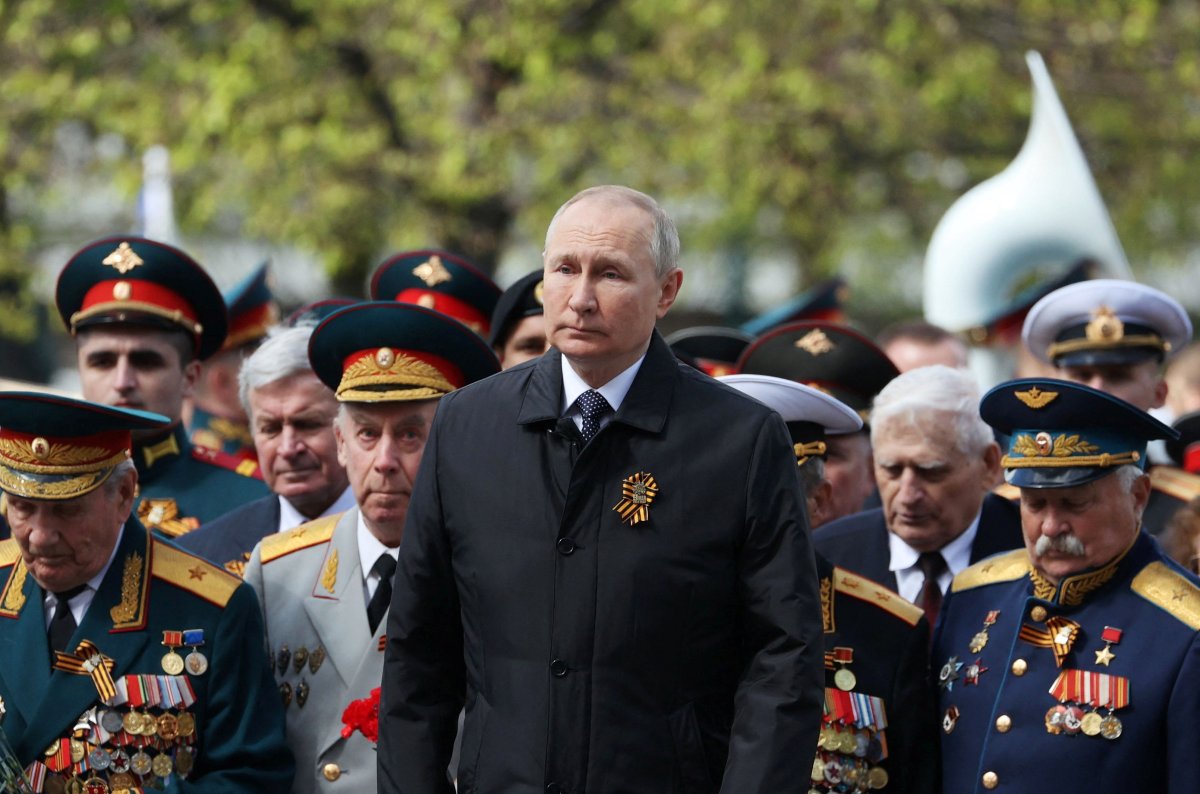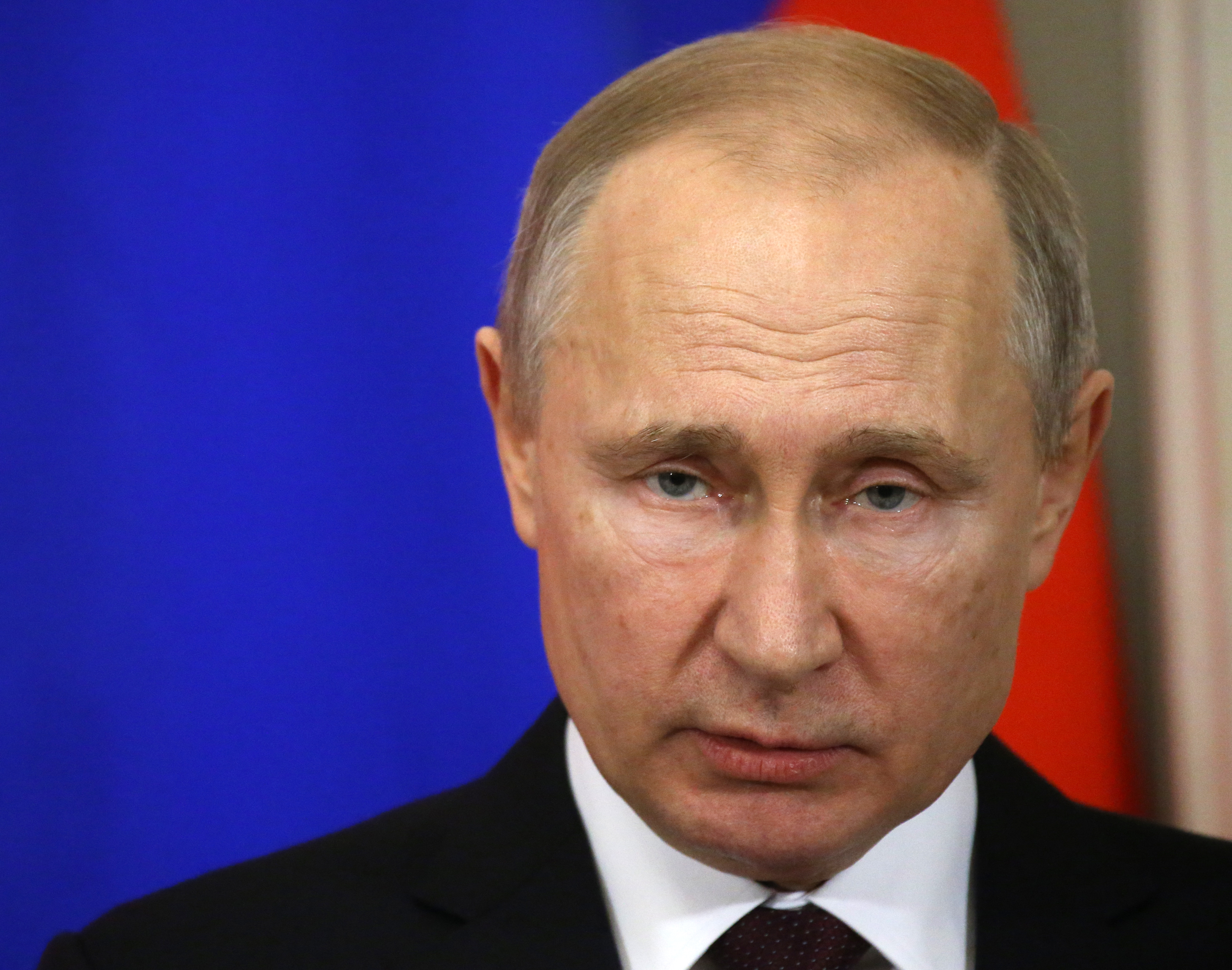Russia's annual in-person commemoration of its country's World War II fighters is not going to take place this year, according to state authorities.
The nixing of the face-to-face "Immortal Regiment" march comes amid reports that the nation's major national event Victory Day event, which is scheduled to take place May 9 and celebrates the Soviet Union's role in defeating Nazi Germany, may be canceled or downsized in certain regions including Crimea, Kursk and Belgorod due to ongoing security concerns resulting from the war with Ukraine.

Russian State Duma Deputy Elena Tsunaeva, co-chairperson of the central headquarters of the "Immortal Regiment of Russia," told Russian state-owned media outlet Tass that remembrance events will still take place in other forms—including the posting of photos of relative military members on social media, on clothes, on cars and on websites dedicated to the regiment.
"A number of regions have already refused because of the threat, [in particular] the Republic of Crimea," Tsunaeva told Tass. "This is still a single indivisible story, the Immortal Regiment procession. If somewhere people do not have such an opportunity, let's use other options."
State Duma deputy Olga Zanko, chairperson of the central headquarters of the all-Russian public movement "Volunteers of Victory," told Tass that Russians will also be able to partake in the "Wall of Memory" project. Citizens can place portraits of relatives who participated in World War II, dubbed the Great Patriotic War in Russia, at special sites nationwide.
An automobile regiment honoring relatives from decades ago may also take place in certain regions, Tsunaeva added.
The march started in 2012 in Tomsk, growing exponentially over the years. In 2019, over 10 million Russians in some 3,700 cities and villages reportedly participated in the commemoration.
An online-only format occurred in 2020 and 2021 due to the COVID-19 pandemic before returning live in 2022.
Oleksiy Danilov, the head of Ukraine's National Security and Defense Council, told The Associated Press on Monday that it is "only a matter of time" until Ukraine's counteroffensive begins. He added that officials are working around the clock in preparation, saying the move "comes with a very high price for us."
Arkady Moshes, program director for the EU Eastern Neighborhood and Russia research program at the Finnish Institute of International Affairs, told Newsweek via email that he believes Russia's Victory Day parade will still take place.
"Scrapping or even considerably downsizing [Victory Day] would demonstrate to the population at large that the situation in general, and on the front in particular, is more problematic than the authorities would be willing to admit," Moshes said.
He said limiting or downright eliminating face-to-face Immortal Regiment marches could be a precaution to avoid deliberate protests, demonstrations of anti-war slogans, or "unintended embarrassment" if people showed up to processions with pictures of their relatives who fought and died in Ukraine.
"The latter is not unlikely since the war in Ukraine is shown by [Russian] propaganda as a continuation of the fight against the Nazis during World War II, and for this reason average people may decide to show how proud they are with their family members," Moshes said. "But the authorities can hardly be interested in the appearance of multiple evidence that the war in Ukraine means loss of lives and sufferings of the same people that constitute their power base."
Russian expert Dmitry Gorenburg of the Center for Naval Analyses told Newsweek via email that he suspects it has less to do with security threats and more to do with concerns about unauthorized expressions of grief for those who have died in the current war against Ukraine.
"The Russian leadership is extremely concerned about any visible domestic manifestations of opposition to the war, and even if there is no direct expression of opposition, just highlighting Russian casualties in Ukraine is undesirable from a regime perspective," Gorenburg said. "Similarly, if the victory day parade is going to be canceled, it may be because the Russian military does not have the advanced equipment to spare for such an activity.
"Even if the main parade in Moscow goes on, I suspect that's why the local parades have been canceled. The equipment is being used in the war, so there's not enough to go around for all the usual parades."
Russia suffered more combat deaths in the first year of the war against Ukraine than in all of its wars since World War II combined, according to a Centers for Strategic and International Studies (CSIS) analysis from February of this year. That translates to 25 times the amount of monthly Russian casualties in Chechnya, and 35 times the number killed in Afghanistan.
Newsweek reached out to the Kremlin via email for comment.
Uncommon Knowledge
Newsweek is committed to challenging conventional wisdom and finding connections in the search for common ground.
Newsweek is committed to challenging conventional wisdom and finding connections in the search for common ground.
About the writer
Nick Mordowanec is a Newsweek reporter based in Michigan. His focus is reporting on Ukraine and Russia, along with social ... Read more
To read how Newsweek uses AI as a newsroom tool, Click here.





